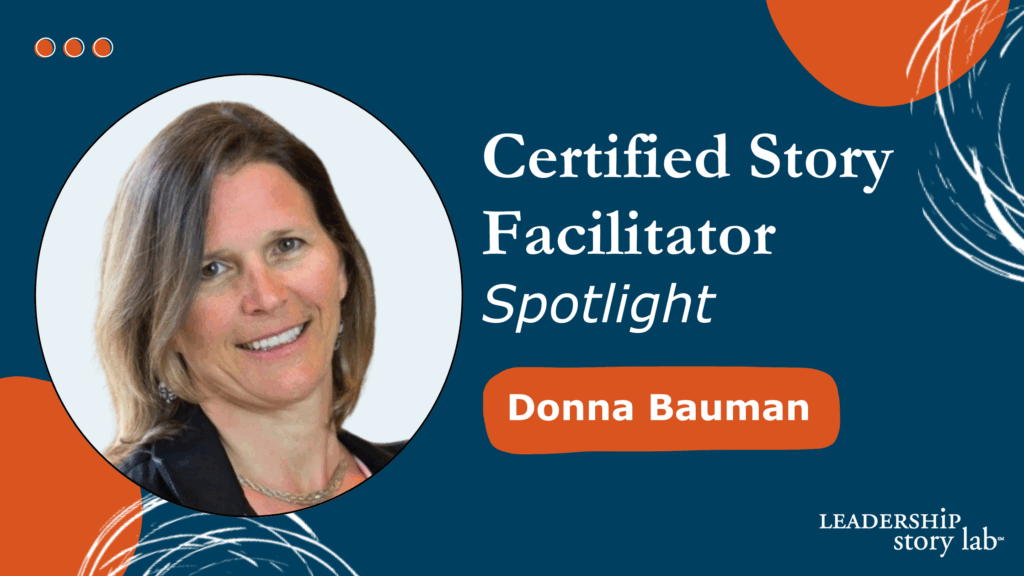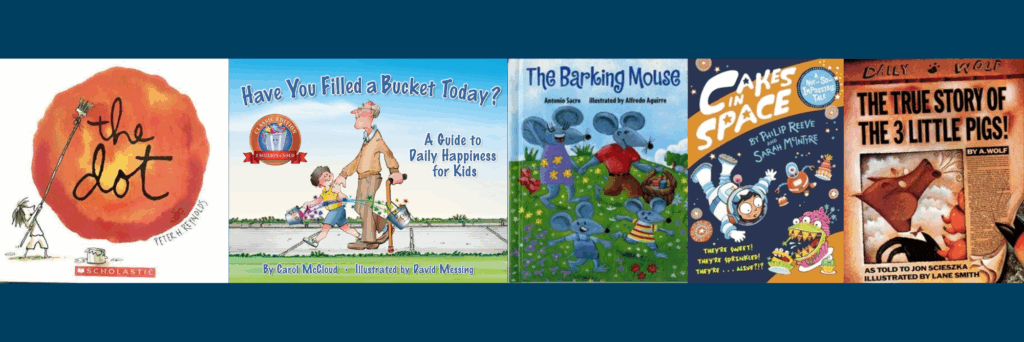February 23, 2023 / Esther Choy

It can be easy to fall for listening to familiar and self-affirming narratives, and avoid the more challenging ones. It’s only human nature. During Black History Month, for example, people love to tell the story of Martin Luther King, the pacifist, but often fail to recall that he was considered “the most dangerous Negro of the future in this Nation” because of his call to radically challenge the social and economic status quo [1].
While producing the newest season of the podcast Family IN Business, a noticeable pattern of entrepreneurial stories emerged. Oftentimes, family entrepreneurs had a tendency to latch on to the easiest story and avoid the more nuanced ones. However, as they embarked on their journeys, they realized that their experience didn’t fit into the easy, familiar and predictable narratives that they had heard over and over again.
You know the story of the text-book entrepreneur; it goes like this: An ingenuitive young man notices a problem and finds a way to solve it. On his journey, he is thwarted by multiple setbacks and also propelled forward by helpful mentors and lucky breaks. These entrepreneurs emerge triumphant, even if they’ve taken on a few battle scars. They are wiser for it and so are we.
These are the kinds of stories we love, because they are familiar and feel good. But in real life, as in Black History Month, our stories don’t always follow a formulaic story arc. So why aren’t we more familiar with other kinds of stories?
One reason: We are afraid. Early on in her career, Family IN Business podcast advisor and Executive Director of the John L. Ward Center for Family Enterprises Jennifer Pendergast and her colleague wanted to write a book about failures so readers can learn from it. It’s a brilliant idea, except that they couldn’t find a single person willing to share their stories of failure. And who can blame them? No one wants to talk about failure unless it all ends with success.
Yet, in order to recognize the complexity and reality of humanity, we need to be able to hear more than one kind of story. In her TED Talk, Nigerian novelist Chimamanda Ngozi Adichie warns us of the danger of only listening to one kind of story: it “robs people of dignity. It makes our recognition of our equal humanity difficult.” Adichie gives the example of coming to U.S. for college and her roommate was shocked that she spoke English and listened to Mariah Carey:
“Her default position toward me, as an African, was a kind of patronizing, well-meaning pity. My roommate had a single story of Africa: a single story of catastrophe. In this single story, there was no possibility of Africans being similar to her in any way, no possibility of feelings more complex than pity, no possibility of a connection as human equals.”
To break out of the rut of single stories, we need to be able to listen to, recognize and create space for more complicated narratives during Black History Month (and every other month). There are three categories of stories that are hard to share. Being able to name and recognize these categories is the first step in opening the door to sharing them:
- There are stories that bear the weight of tragedy and grief; so challenging that they dredge up uncomfortable emotions. We avoid them altogether.
- There are also stories that seem too complex, only people with the same knowledge base can understand them. So we only share them with colleagues who we know will understand.
- And finally, there are stories that seem far too mundane. So we don’t bother to share these stories to anyone.
When we don’t make room to share these more diverse and difficult stories, we all lose. Our collective understanding of the world is limited and incomplete. Our understanding of our neighbors, colleagues, and community is radically diminished. When these stories that bring awareness remain unspoken, our shared humanity is veiled. Collaboration, connection and creativity are stifled as we all try to fit each other (and ourselves) into the cliches of the more familiar story types.
The Impact Of A Challenging Story
The story of the Black Wall Street Massacre of 1921 is as grievous as it is shameful. In popular U.S. history it has been brushed under the rug; it’s even been referred to as a “riot” to mask the violent truth. If you ask high school students studying U.S. History about Black History Month, most will be able to recount something about the civil rights movement and Martin Luther King, Jr., but they will not be able to tell the story of what was lost when the burgeoning middle class of African Americans was effectively destroyed.
Because these kinds of stories remain largely unheard, the impact of racism on African Americans collective wealth and intergenerational prosperity also remains misunderstood. Economist Paul Romer won the Nobel Prize in Economics for his theory that innovation is a source of economic growth and can be fostered by creating strong patent laws. Yet the truth is more chilling and complex than that.
Dr. Lisa Cook painstakingly compared the number of patents secured by black and white inventors against the history of violent racist acts to learn that personal safety, protection, access to libraries and communities of innovators are also needed to cultivate economic growth through innovation.
After the Black Wall Street Massacre the message was heard by African American was clear. Planet Money host describes it like this: “The government wouldn’t provide the most basic protections, not for their lives, not for their property, and certainly not for their inventions.” Thus patents by black inventors fell dramatically after 1921.
The story of the Black Wall Street Massacre is challenging to listen to. The economic impact it had is complex. But when we are able to hear these stories, our understanding of the struggles of our fellow citizens grows.
The Impact Of A Complex Story
Complexity is everywhere. Finance. Data science. Medicine. Experts with complex knowledge can shy away from telling their stories to audiences who don’t share their same level of expertise. When people fail to talk about complexity, it’s an opportunity lost.
For example, when a third generation business leader in local media, Zack Richner, saw the problem of failing local newspapers, he created an innovative “in-kind marketing investment” business model. This is a complex idea that he makes simple by breaking it up into manageable parts:
“I wanted to look at what we as a newspaper industry do well and … concluded it was four main things. The first was we provide really compelling content. The second is we have really unique marketing channels. The third is we have long standing relationships with both consumers and small businesses. And then the fourth is we have a really well known and trusted brand in our communities. Once I had those four core tenets, just blue sky, what could we do that would leverage these four areas?
“And I … knew some friends and family that worked either at venture funds or startups. And I kept hearing the same thing. That a ton of a startup’s budget was spent on marketing… So I had this audacious idea that traditional media could and should be part of a startup’s marketing plan.”
Richner founded Arrandale Ventures, a venture capital firm that is creating an innovative and sustainable business model for local media companies because he was able to use his expertise as an media business insider and explain its virtues to startups with a need for meaningful marketing.
The Impact Of A Mundane Story
When a story is familiar, we often assume it’s mundane, so we don’t tell it. We rely on cliches instead of sharing our real stories.
So at a business school reunion, when Jennifer Chen wanted to share her mundane story about impact of COVID, she primed her audience like this: “Everyone does it. And I bet you should probably do it more. Lots of people do it on the couch but the best and proper place is in bed. During the pandemic, I learned to do it better and it makes me feel like I can accomplish anything.”
What Chen had experienced during the COVID shutdown was the phenomenal impact of practicing good sleep habits, but it’s a bit obvious: Of course good sleeps makes you feel better. When she had the chance to tell her story, she used an intriguing set up and the impact was immediate. At the reunion everyone wanted to hear her story and came up to ask her questions later.
When we tell a story to highlight an everyday and commonplace occurrence, we bring the human experience into crisper focus and build connections with the people around us.
—
These three examples demonstrate the necessity of telling challenging stories: They create connection, they create opportunity, they create understanding and dignity. Former Executive Director for the Asian/Pacific Islander Domestic Violence Resource Project Jessica Li understands the power of daring to tell challenging stories. She describes the impact like this: “I always had a difficult time telling my story publicly about why I chose to work in the field of domestic violence. It was so personal. Esther taught me how to turn my experience into a strength and a call to action. With her coaching, I can now craft an inspiring, emotional tale that keeps the audience on the edge of their seats.”
When we make room for authentic storytelling at work or in our friendships, we are all better for it. This Black History Month commit to practice listening to and telling challenging stories. Try one of our Story Labs for a supportive environment to workshop your challenging story.
Better Every Story
Leadership Transformation through Storytelling
"This is an amazing and insightful post! I hadn’t thought of that so you broadened my perspective. I always appreciate your insight!" - Dan B.
Get Esther Choy’s insights, best practices and examples of great storytelling to your inbox each month.




